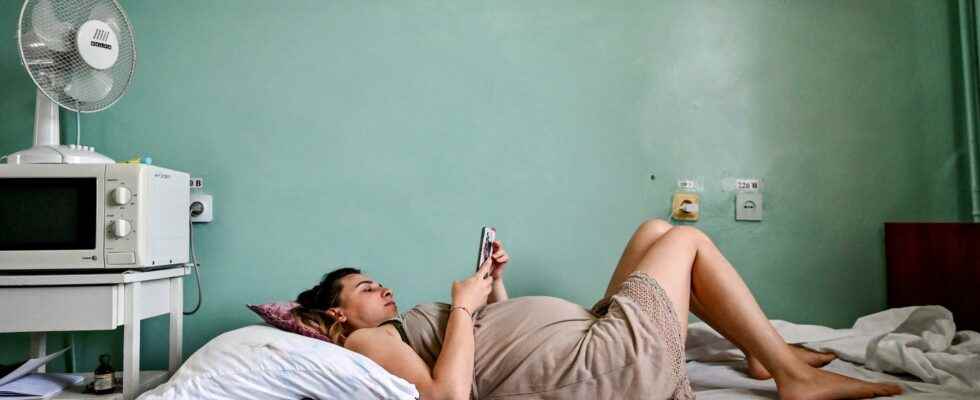Published: Just now
It is approaching the estimated date. And in the worst case, a nuclear disaster.
At a maternity clinic in Zaporizhzhya, expectant mothers eat iodine tablets while rumblings from the front line.
– We planned for a child, but didn’t know if we would be happy or not, says Maryna.
The 30-year-old received the news that she was pregnant on February 27. Three days earlier, Russia had begun its full-scale invasion of Ukraine on several fronts.
– My husband said: “We really should be happy. God gave us this, so everything will be alright”.
Within radiation radius
Now, 27 weeks later, they are sitting in the maternity clinic in western Zaporizhzhya. It is located a couple of miles from the front and the high-profile nuclear power plant that Russia has occupied since March.
The clinic is thus located within the five-mile radius that is judged to be the worst contaminated by radiation if there is a major mishap at the plant.
In recent weeks, there has been extensive shelling in the area, which Russia and Ukraine accuse each other of.
– We have received all the necessary recommendations from the authorities, as well as pills for radiation sickness, says the 59-year-old neonatologist Larysa Gusakova.
Obstetrician Natalya Solovyova, 30, puts her hope in “common sense”. She says that Russia should remember how things went in Chernobyl in 1986.
Prepare the basement
The mothers-to-be and the mothers at the clinic come partly from the immediate area, partly from occupied areas that they have fled. Every day around five babies are born there.
When the war came, the clinic’s basement became a shelter, where new mothers can have some peace and quiet with their newborns. There are supplies for at least seven days as well as a delivery chair in case a woman needs to give birth down there. It has not yet been used.
– It was very tough in the beginning. It happened that we carried a woman down in our arms right after she was delivered, says Larysa Gusakova.
One woman, Valentyna, gave birth to her daughter Tetiana three days before AFP’s visit.
– Of course you try not to think about it, to be in a normal psychological state to be able to produce milk, she says.
Sirens raise concerns
Staff and patients say they have read rumors on Russian social media that the hospital is being used as a hideout for the Ukrainian military. They show around the building to prove that this is not the case.
On March 9, Russian warplanes bombed a children’s and maternity hospital in Mariupol in a high-profile attack that has been described internationally as a war crime. Four people were killed and at least one miscarriage was caused. The parties to the war had actually agreed on a ceasefire for humanitarian reasons. Russia later claimed that there were Ukrainian soldiers in the hospital.
New mother Valentyna says she has just started to react when sirens sound, warning of seizures.
– Sirens didn’t used to scare us as much as they do now. . . A special kind of worry arises when one has given birth to a child.
